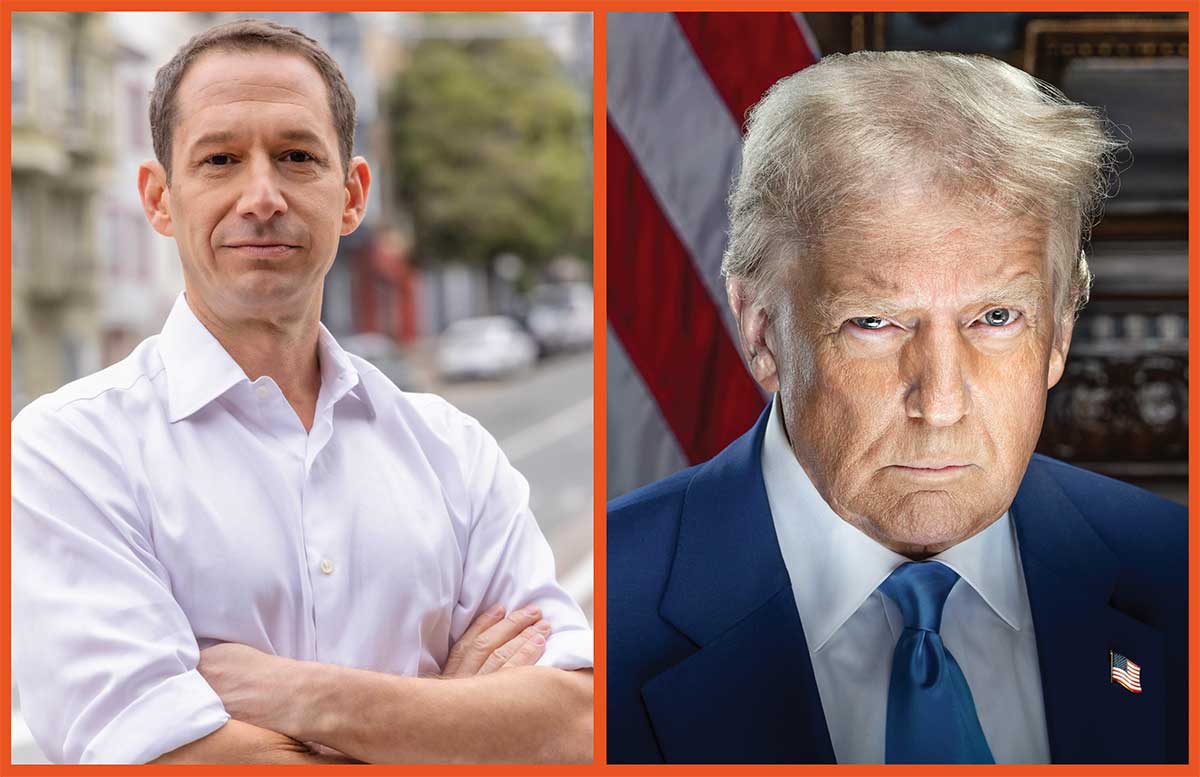For years, Anne Applebaum pinned a quote to the top of her X account saying, “After this is all over, I never, ever want to hear again about how businessmen would run the government better than politicians.”
On Oct. 23, Mayor Daniel Lurie issued a statement announcing that the president had changed his mind — at least for now — about deploying National Guard troops in the city. Lurie took credit for the change, saying that he spoke by phone with the president and convinced him San Francisco’s not the hellscape Trump believes it is. Perhaps with more savvy, he wrote, “We have work to do, and we would welcome continued partnerships with the FBI, DEA, ATF, and U.S. Attorney to get drugs and drug dealers off our streets, but having the military and militarized immigration enforcement in our city will hinder our recovery.” That’s a message more Democratic leaders should be echoing, because it addresses both voter concerns about crime and the appropriate way to go about dealing with it; if elected leaders aren’t doing the appropriate things to deal with crime, voters will be fine with inappropriate things.
For his part, Trump did say he spoke with Lurie, but he downplayed the mayor’s impact and instead credited “[g]reat people like Jensen Huang, Marc Benioff, and others” for convincing him to hold off on sending troops.
It does seem like we’re in the Crassus-Pompey era of Roman republican decline, in which the only voices that matter are those that have the most money behind them. That’s why Benioff’s recent interview with The New York Times, in which he praised the president and said he was “all for” troops fighting crime in the city, had such impact.
In a recent conversation I had with some political journalists and experts, former San Francisco Chronicle writer Carla Marinucci said Benioff was “now in the process of doing damage control, . . . saying ‘Well, wait a minute, nobody’s done more for this city than I have”— such as UCSF Benioff Children’s Hospital and other philanthropic gifts — ”and to be fair, he has.” But, she added, “He’s just gone the way Zuckerberg and the rest of these other tech giants have gone, which is understanding that their friendliness with Trump means everything to their bottom line.”
Former KCBS political reporter Doug Sovern said Benioff was just speaking his mind, reacting to some of what has happened in the city but perhaps out of touch with how things really are. Benioff did the Times interview “on the eve of Dreamforce, where he was hiring a couple hundred off-duty cops to patrol it; I think he was just thinking, ‘Why do I have to do this? Yeah, we need help. Why do I have to pay for these?’ I think that’s where it came from.”
Trump said ‘Fifteen years ago, San Francisco was a great town.’ But 15 years ago, Gavin Newsom was mayor.
And though the murder rate is lower than it has been in decades, “[i]n his defense, he did hit upon an issue in terms of crime in San Francisco,” said Marinucci, calling it an “Achilles heel for Democrats” in big cities.” Trump, who has an uncanny ability to attack his opponents’ vulnerabilities, “has been nailing this. Trump said . . . , ‘San Francisco, I may send the National Guard there. Fifteen years ago, San Francisco was a great town.’ But 15 years ago, Gavin Newsom was mayor.”
Tim Anaya, a veteran of Republican legislative communications in Sacramento and the current vice president of marketing and communications at the Pacific Research Institute, suggests the Democrat-Silicon Valley rupture might be longer lasting than some expect. He said when he heard Benioff’s comments, “I thought it was — pun intended — rich hearing him say that. Remember, this is the guy that brought us Prop. C, the $300 million-a-year tax hike . . . and funding the kind of Gavin Newsom-type of homeless programs, the kind of big-check-presentation kind of programs. His U.C. homeless initiative, they funded a study that was requested by . . . the state health director, and their conclusion in that study was ‘You should have more programs like what Gavin Newsom is proposing.’ That’s what we should do to address homelessness.”
Anaya recalled a meeting between Republican political operatives and Silicon Valley leaders, who were bemoaning anti-tech bills and regulations. One of the Republicans said, “You get what you pay for. You elected all of these people. If you’re not happy with what’s going on, you should talk to the people that you support.” Anaya said that tech leaders like Benioff and Zuckerberg have looked at the last four years of regulations and Justice Department targeting of tech companies and are thinking, “‘I spent $25 million to elect this guy, what are they doing now?’ I think it’s more that at play than necessarily ‘We want to curry favor with Trump,’ though that is undeniably part of it.”
If Benioff feels critics have unfairly piled on him for his comments, then he needs to take a reality check. Benioff talks and texts with journalists all the time; he knows how to communicate, and this wasn’t the first interview he’s given.
More important, and to Anne Applebaum’s point, just because someone can build a giant corporation and has thousands of people who do whatever he tells them to do doesn’t mean that he has instant solutions for everything.
Related

